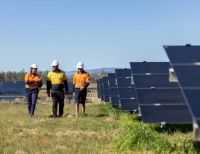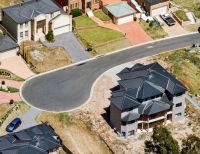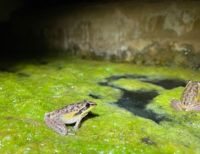A consortium led by UNSW Sydney is operating the centre to improve health outcomes for people with intellectual disability.
A National Centre to address the health inequities faced by people with intellectual disability has opened at UNSW Sydney. Photo: UNSW
The National Centre of Excellence in Intellectual Disability Health was opened today at UNSW Sydney by the Assistant Minister for Health and Aged Care, Ged Kearney. The Centre will be a catalyst for action to ensure people with intellectual disability have improved access to quality, timely and comprehensive health care.
The establishment of the Centre is a response to the significant health disadvantage experienced by people with intellectual disability. It will support the delivery of the Australian government’s National Roadmap for Improving the Health of People with Intellectual Disability. UNSW Professor Julian Trollor from the School of Clinical Medicine will lead the operation of the National Centre. Funding of $22 million over four years from 2022-23 has been provided by the Australian government.
“There are 450,000 Australians who have an intellectual disability, and they deserve access to excellent, tailored and empathetic health care that fits their needs,” Ms Kearney said as she formally opened the Centre at UNSW. “The lived experience and skills of people with a disability will be central to the success of this Centre.”
A fusion of advocacy, research and clinical experience
The National Centre brings together strong advocacy along with clinical and research experience in intellectual disability health, led by a consortium including UNSW, the Council for Intellectual Disability, Down Syndrome Australia, Queenslanders with Disability Network, First Peoples Disability Network Australia, University of Melbourne, Telethon Kids Institute, Mater Intellectual Disability and Autism Service (affiliated with University of Queensland) and the Centre for Disability Studies (affiliated with the University of Sydney).
The work will be supported by a broader network of 20 partner and 36 collaborator organisations, including state health departments, universities, primary health networks, peak and regulatory bodies, First Nations community-controlled organisations and local health districts.
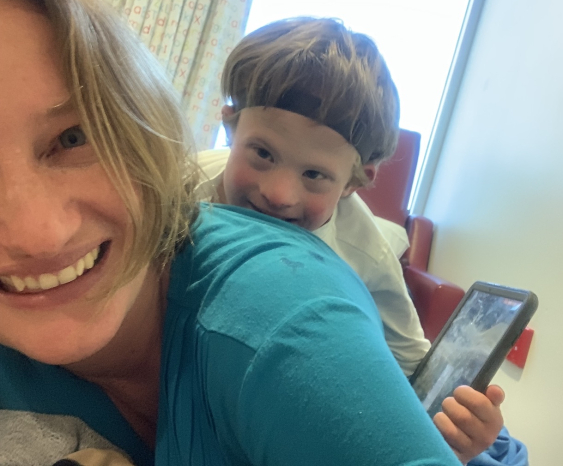
"Real hope for change": Rebecca Kelly and son Ryan.
UNSW Vice-Chancellor and President Professor Attila Brungs said the National Centre would be instrumental in co-designing better health care for people with intellectual disability, delivering meaningful change.
“This National Centre will help address the health inequities faced by people with intellectual disability by improving collaboration between intellectual disability health services, research bodies and advocacy organisations. We’re proud to partner in this co-designed initiative,” Prof. Brungs said.
The Centre is built on an innovative and comprehensive model that includes shared governance with people with intellectual disability, their families, and advocates. The focus will be on people with intellectual disability and intersectional needs including First Nations people with intellectual disability, those living in rural and remote locations, and people experiencing homelessness or facing mental health and drug and alcohol issues.
Read more: Renewed call to address health gap for people with intellectual disability
Acting Director of the Centre, Prof. Julian Trollor, said that previous work by consortium members had highlighted major health inequalities for people with intellectual disability in Australia.
“It’s time to turn our attention to innovative solutions. This can only be done in partnership with people with intellectual disability, health and disability professionals, services and regulatory authorities, academics, and advocates,” Prof. Trollor said.
He said the core functions of the National Centre would include providing leadership in intellectual disability health, driving innovation and collaboration, and lifting the capability of health services to meet the needs of people with intellectual disability through training and development of best practice models of care.
Improving the health of people with intellectual disabilities
Donna Best, who lives with intellectual disability and is the Group Convenor of Queenslanders with Disability Network’s Hot Topics Peer Support Group, said the launch of the centre was significant for her.
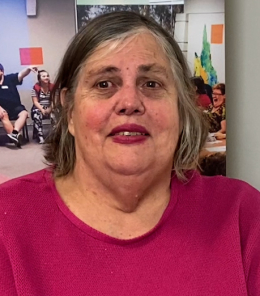
"This is an important moment in time": Donna Best, Group Convenor of Queenslanders with Disability Network’s Hot Topics Peer Support Group.
“This is an important moment in time for me as a person with intellectual disability and great that we are front and centre in leading the work. To have a Centre that will help the health system, health professionals and staff understand us, listen to us, and involve us in our health care will mean we get better care and have better health. We can show the world what we can do and lead the way,” she said.
Dr Rebecca Kelly is an environmental scientist who supports her young son Ryan with intellectual disability and complex health needs. She said Ryan had experienced many challenges in accessing health care that met his needs.
“The Centre and its comprehensive collaborative approach to improving health outcomes for people with intellectual disabilities gives me real hope for change. I’m very hopeful that this serious commitment across advocacy, research and government will mean that Ryan’s health care needs will be met long after I’m not able to keep fighting for him,” Dr Kelly said.
The Centre will also support access to clinical expertise and provides online support for people with intellectual disability and their families, helping to connect them to appropriate health services.












